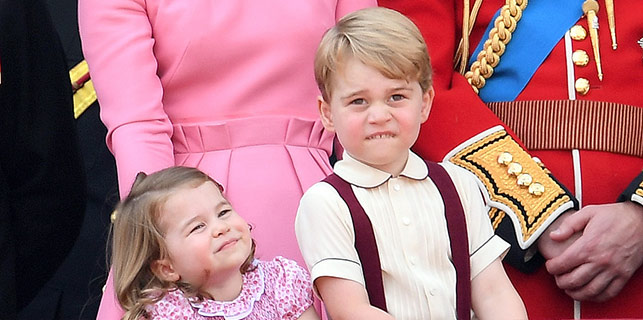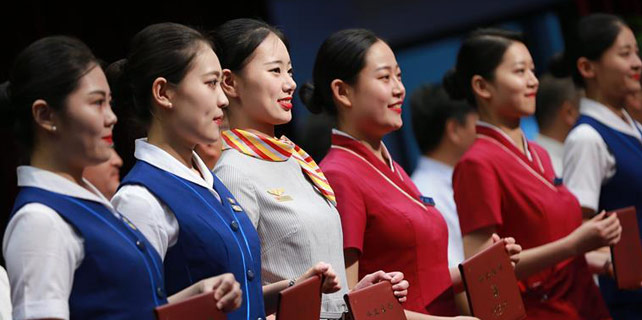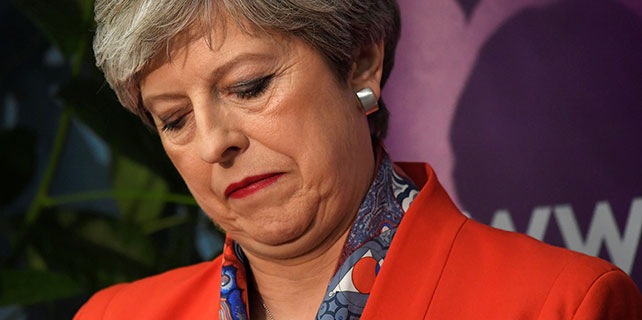China's home prices show signs of cooling on tough controls
BEIJING - China's home prices have shown signs of cooling as home prices faltered in major cities, after authorities implemented a string of measures to contain price hikes.
Of 70 large and medium-sized cities surveyed, 35 cities witnessed a month-on-month price decline or a slower price uptick in May, up from 31 in April, said the National Bureau of Statistics (NBS) on Monday.
A total of 29 cities witnessed a slower price rise year on year in May,said the NBS.
All of the 15 first-tier and second-tier cities surveyed saw slower year-on-year price rises in May, and nine of them also saw month-on-month price declines or flat prices.
New residential house prices in Shenzhen, a southern metropolis neighboring Hong Kong, fell 0.6 percent month on month in May, while house prices in Beijing and Shanghai remained flat in May from April.
"Prices of newly built homes in 15 major cities including Beijing, Shanghai and Shenzhen continued to stabilize in May on the back of targeted local government policies," said NBS statistician Liu Jianwei.
Property sales recorded strong growth in 2016 with an annual gain of 22.5 percent, thanks to two years of policy easing, starting with relaxation of purchase restrictions in 2014 and fueled by pro-growth policies, including interest rate cuts.
Rocketing housing prices, especially in major cities, had fueled concerns about asset bubbles. China's policymakers announced in December that "houses are for living in, not for speculation."
Since October of last year, local governments have implemented a slew of measures, including higher down payments, increased mortgage rates and tougher purchase restrictions, to rein in rising home prices and quash potential asset bubbles.
The property market, however, picked up its pace in February this year after price gains slowed in previous months, which has led to the biggest wave of tightening of home purchases and lending rules since mid-March.
Dozens of Chinese cities have implemented tougher cooling measures to limit price gains since mid-March, following Beijing's unprecedented harsh curbs that lifted the down payment ratio for second homes to 60 percent.
Meanwhile, China's central bank has also urged banks to strengthen mortgage risk management and crack down on market irregularities such as fake divorces to skirt high down payment requirements.
Given the tougher cooling measures, analysts predicted that home prices will continue to cool in coming months and there will be more intensified policies due to price rises in some third-tier cities.
Xia Dan, a senior researcher at the Bank of Communications, predicted prices in previously red-hot markets like Beijing would continue their downward movement.
More home purchase restrictions and the tightened monetary environment will weigh on market demand in the short term, thus resulting in lower prices and shrinking property sales, said Xia.
Purchase restriction policies will expand to third-tier and fourth-tier cities to cope with the recent price rallies in these cities, said Zhang Dawei, a senior analyst with Centaline Property.
A monthly report released by the Chinese Academy of Social Sciences in early June also predicted the downward trend of home prices in the second half of the year.
However, in the long term, said the report, limited land and environmental capacity will restrict housing supply in big cities and threaten to push home prices higher.
Of 70 large and medium-sized cities surveyed, 35 cities witnessed a month-on-month price decline or a slower price uptick in May, up from 31 in April, said the National Bureau of Statistics (NBS) on Monday.
A total of 29 cities witnessed a slower price rise year on year in May,said the NBS.
All of the 15 first-tier and second-tier cities surveyed saw slower year-on-year price rises in May, and nine of them also saw month-on-month price declines or flat prices.
New residential house prices in Shenzhen, a southern metropolis neighboring Hong Kong, fell 0.6 percent month on month in May, while house prices in Beijing and Shanghai remained flat in May from April.
"Prices of newly built homes in 15 major cities including Beijing, Shanghai and Shenzhen continued to stabilize in May on the back of targeted local government policies," said NBS statistician Liu Jianwei.
Property sales recorded strong growth in 2016 with an annual gain of 22.5 percent, thanks to two years of policy easing, starting with relaxation of purchase restrictions in 2014 and fueled by pro-growth policies, including interest rate cuts.
Rocketing housing prices, especially in major cities, had fueled concerns about asset bubbles. China's policymakers announced in December that "houses are for living in, not for speculation."
Since October of last year, local governments have implemented a slew of measures, including higher down payments, increased mortgage rates and tougher purchase restrictions, to rein in rising home prices and quash potential asset bubbles.
The property market, however, picked up its pace in February this year after price gains slowed in previous months, which has led to the biggest wave of tightening of home purchases and lending rules since mid-March.
Dozens of Chinese cities have implemented tougher cooling measures to limit price gains since mid-March, following Beijing's unprecedented harsh curbs that lifted the down payment ratio for second homes to 60 percent.
Meanwhile, China's central bank has also urged banks to strengthen mortgage risk management and crack down on market irregularities such as fake divorces to skirt high down payment requirements.
Given the tougher cooling measures, analysts predicted that home prices will continue to cool in coming months and there will be more intensified policies due to price rises in some third-tier cities.
Xia Dan, a senior researcher at the Bank of Communications, predicted prices in previously red-hot markets like Beijing would continue their downward movement.
More home purchase restrictions and the tightened monetary environment will weigh on market demand in the short term, thus resulting in lower prices and shrinking property sales, said Xia.
Purchase restriction policies will expand to third-tier and fourth-tier cities to cope with the recent price rallies in these cities, said Zhang Dawei, a senior analyst with Centaline Property.
A monthly report released by the Chinese Academy of Social Sciences in early June also predicted the downward trend of home prices in the second half of the year.
However, in the long term, said the report, limited land and environmental capacity will restrict housing supply in big cities and threaten to push home prices higher.
Related Stories






















